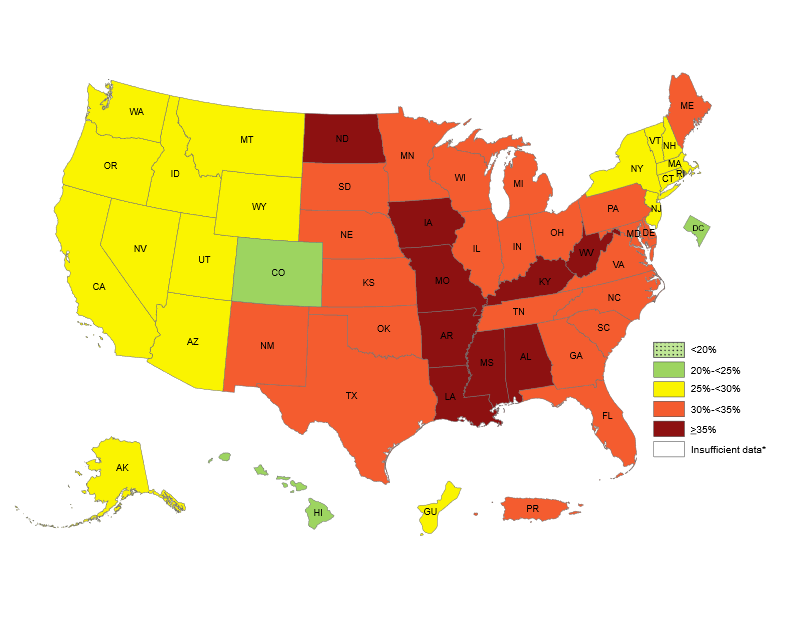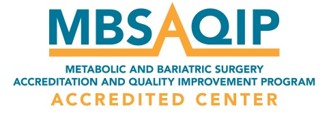Learn If You Qualify
What is Obesity?
Obesity and BMI
According to the National Center for Health, 93 million Americans are considered obese, and obesity is considered a rising epidemic in the United States. The increase in chronic health conditions caused by obesity is similar to that seen in 20 years of aging.
Obesity is defined as a BMI of 30, severe obesity is associated with a BMI of 35, and morbid obesity with a BMI of 40 or higher. Obesity can be a degenerative and debilitating disease. The National Institutes of Health reports that obesity substantially increases the risk of morbidity and mortality from:
- Heart Disease
- Diabetes (Type 2)
- Stroke
- High Blood Pressure
- Sleep Apnea
- Cancer
- Breathing Difficulties
- Joint Problems
According to the American Obesity Association, obese individuals have a 50 percent to 100 percent increased risk of death compared to individuals of normal weight, with 300,000 to 587,000 deaths each year. This substantial increase in health risks has made obesity the second leading cause of preventable death in the United States.
The prevalence of obesity in the state of Missouri is high. 35% or more adults in Missouri suffer from obesity, placing Missouri as one of the top 9 obese states in the country.
Prevalence of Self-Reported Obesity Among U.S. Adults by State and Territory, BRFSS, 2018

Am I a Candidate for Non-Surgical or Surgical Weight Loss Surgery?
Boone Hospital Bariatric Program is a weight-management program for those coping with obesity who have been unable to achieve their weight loss goals through diet or behavioral modification. The Boone Hospital Center Bariatric Program can help you lose weight and live a happy healthy life!
Am I a Candidate for the Program?
You may qualify for a surgical weight loss procedure if you meet one of the following requirements:
- A BMI over 40
- A BMI over 35 with at least one co-morbid condition.
Your BMI is the relationship between your height and weight. Don’t know what your BMI is? Use our online BMI calculator to find yours!
Take the First Steps
It all starts with just one consultation. If you are ready to move forward with your weight loss journey, all you have to do is contact us! Give us a call, register for a seminar or send us an email.
The first step for all patients to enter our program is to attend or take an informational seminar online. In the meantime it is important that you be doing the following:
- Contact your insurance company and determine your plan has a benefit for weight loss surgery.
- Gather all weight loss records and documents. Many insurance companies require documentation of at least six continuous months of a physician-supervised weight loss program.
- Begin making healthy food choices and begin to make lifestyle changes such as starting an exercise plan. Any weight that you can lose before surgery is very important.
Treatment
Once you have established that you meet the criteria for weight loss surgery, we suggest researching the surgical treatment options available. Currently Boone Hospital Center provides Laparoscopic Adjustable Gastric Banding, Sleeve Gastrectomy, and Gastric Bypass procedures.
Age
You must be between ages 18-64 to be considered for surgery. Others may be considered on a case by case basis.
Weight & BMI Requirements
Weight must be less than 500 pounds and BMI must be between 30 and 60 for the Laparoscopic Adjustable Gastric Band and between 35-60 for the Sleeve Gastrectomy. For Gastric Bypass, BMI must be 35-39.9 with a comorbidity (an additional chronic disease or condition) or greater than 40. Calculate your BMI.
Weight Loss History
You must have made prior attempts at weight loss. Surgery should be considered your last option. Please record all weight loss attempts in the medical questionnaire. If you have records of past weight loss attempts (i.e. Weight Watchers, Jenny Craig, Physician Supervised Diet, etc.), please include them with your questionnaire.
Additional Criteria
- You must be able to walk and care for yourself with minimal assistance.
- Must be smoke-free for 3 months prior to surgery.
- Must not use alcohol in excess or use illegal substances.
- Must be prepared to attend regular follow-up sessions and make changes in your lifestyle and eating habits.
